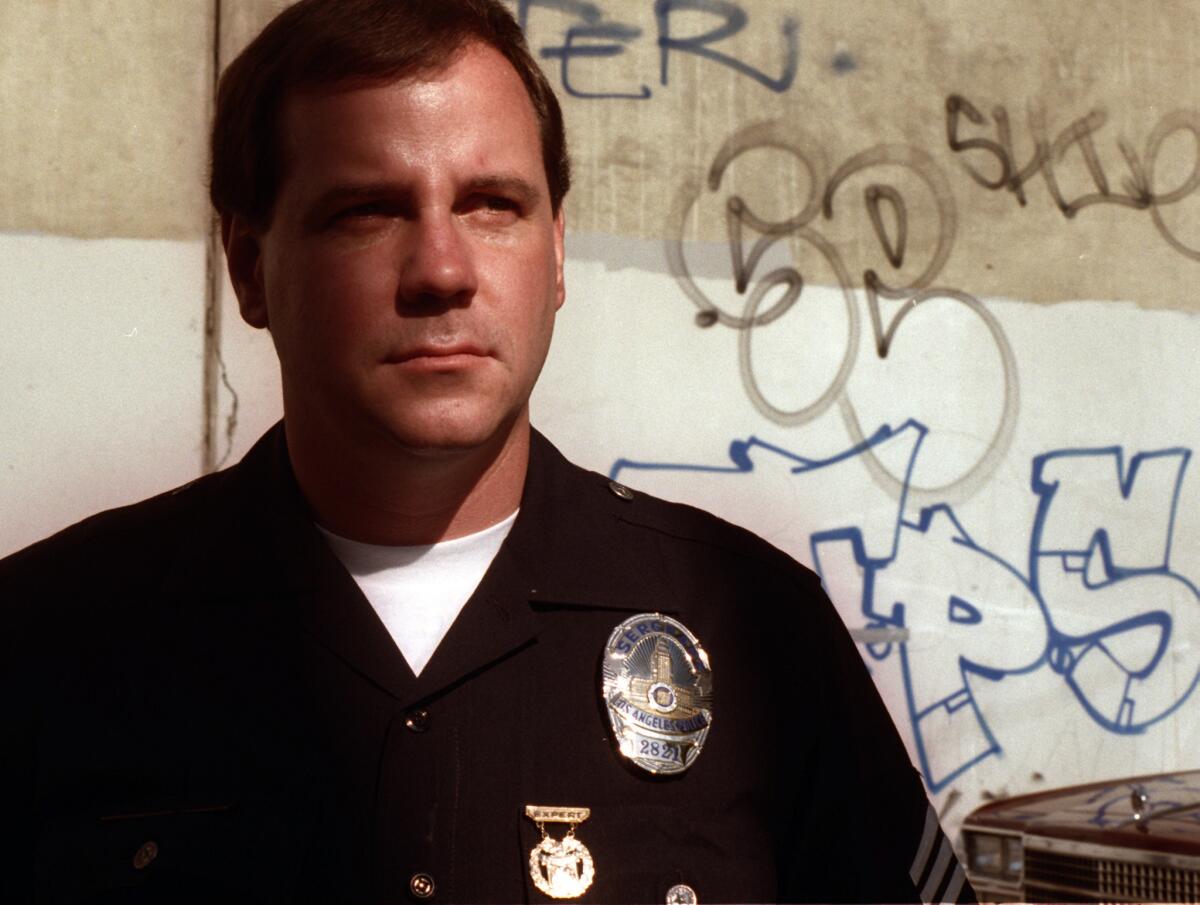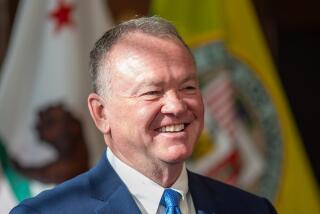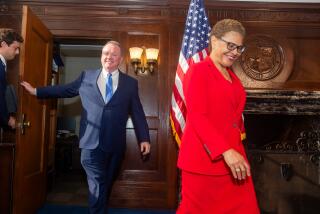New L.A. police union president guided by bitter lessons in the past

Craig Lally, the incoming president of the union that represents Los Angeles police officers, has a newspaper article from 1992 framed on his office wall.
Far from a puff piece, the article named Lally as one of the Christopher Commission’s infamous 44 “problem officers.” The commission, a blue-ribbon panel that proposed reforms following the police beating of Rodney G. King in 1991, had flagged the officers for having several allegations of misconduct against them. The list, according to the commission, was meant to illustrate “the problem of excessive force in the LAPD.”
Lally, a nearly 35-year veteran of the department, said he keeps the article nearby “as a reminder not to let what happened to me happen to any other officer.” He takes over as head of the Police Protective League on Thursday after winning a vote by the union’s roughly 9,800 rank-and-file officers.
In many ways, Lally, 58, said the path that led him to the union’s top post began with his inclusion on the list of 44.
He was at the time a newly promoted sergeant who was well-regarded within the department. When The Times published the names of the 44 officers, Lally publicly contested the commission’s decision to include him on a ledger of the department’s worst offenders. Unlike many on the list, none of the accusations Lally faced had been sustained by department investigations.
Lally saved much of his anger for the league, going so far as to file a lawsuit for what he saw as a breach of the union’s responsibility to wage a legal battle against the LAPD and the commission on behalf of the 44 officers.
“So many of us were hung out to dry. They did virtually nothing for us,” Lally said of the league’s leaders. “I wanted to change what goes on here.”
Richard Drooyan, who served as a deputy general counsel for the commission and is a former president of the civilian board that oversees the LAPD, downplayed the significance of Lally’s presence on a list that is now more than two decades old. More important, he said, is how Lally has performed in recent years.
Drooyan said he agrees with Lally that an officer without any sustained allegations of misconduct was less of a concern to the commission than those who the department found violated use-of-force policies. Drooyan stood by the list, however, saying the commission had serious concerns about the LAPD’s ability to adequately investigate its officers for wrongdoing. It was appropriate to scrutinize an officer who used force on suspects with unusual frequency and who faced accusations of going too far, regardless of what the investigations found, Drooyan said.
Lally, now a lieutenant, spent most of his career working in various patrol assignments, except for a five-year stint in a specialized crime suppression unit within the department’s Metropolitan Division. For the last three years he has served as a union director — a full-time position.
With the union and city at loggerheads over a new contract and several longtime union officials having been replaced, Lally takes over at a particularly tumultuous time. The fight for a favorable labor agreement is a top priority, Lally said, as well as pushing the department to make changes to its system for disciplining officers. The department’s handling of discipline, he said, “is a joke,” sounding a perennial complaint by union leaders.
In his new position, Lally will deal frequently with Charlie Beck, the department’s chief, who was appointed to a second five-year term this summer.
The relationship seemed destined to get off to a tense start. Lally said he believes “most of the league’s members are disappointed with the chief.”
“They feel like they’ve been left out in the cold,” he said. “They see the chief as someone who makes decisions for political reasons instead of really leading the department.”
“I congratulate Craig Lally on being elected president,” Beck told The Times. “I look forward to working with him and the other directors to improve the safety, health and working conditions of our LAPD officers.”
[email protected]
Twitter: @joelrubin
More to Read
Sign up for Essential California
The most important California stories and recommendations in your inbox every morning.
You may occasionally receive promotional content from the Los Angeles Times.











